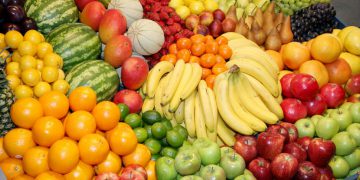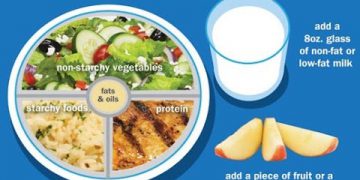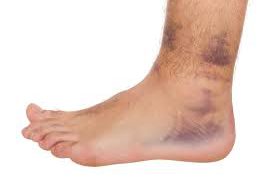The idea of diabetes and nutrition should be a concern to every one of us. Nutrition and the symptoms of diabetes mellitus as an idea should not be restricted to diabetics.
What is diabetes?
Diabetes is a metabolic disorder it occurs when the body doesn’t regulate the blood sugar level properly. The main problem is that the body does not make enough of the hormone insulin or can’t use it properly.
There are two main types of diabetes that affect most diabetics. These are type 1 diabetes and type 2 diabetes. Type 1 diabetes occurs when your pancreas, a small organ near your stomach, doesn’t produce any insulin. Type 2 diabetes occurs when the pancreas either doesn’t produce enough insulin or the cells in your body simply just ignore the insulin produced. It is claimed that between ninety percent (90%) and ninety five percent (95%) of people who are diagnosed with diabetes is diagnosed with type 2 diabetes.
When food is digested your body converts most of the food you eat into a substance called glucose which is a form of sugar. Insulin which is the gate keeper allows the glucose to enter all the cells of your body. The cells of the body use the glucose for energy.
When diabetes comes along your body either doesn’t make enough insulin or can’t use it properly. This malfunction causes the build up of glucose in the blood stream instead of moving it into the cells of the body where it is needed for energy. Where there is too much glucose in the blood stream it cause the complications of diabetes to develop and can lead to other serious health issues or even death.
Whatever I eat will it matter to my health? Should I be worried about diabetes and nutrition?
Whatever you eat does matter and is closely connected to the amount of glucose or sugar in your blood stream. If you make the right food choices it will help you control your blood sugar level. A number of methods have been developed to assist you in making better choices in your Diabetic meal planning. These methods include:
- The food pyramid
- The plate method
- Carbohydrate counting
- Diabetic food exchange lists
These are mainly guides to help but your dietician will help you with this process.
What about diabetes and nutrition diets? Do I have to conform to a special diet plan?
There isn’t one “diabetes diet fit all concept that will work.” Your doctor will suggest that you work closely with a registered dietician who will design a meal plan that will suit you individually.
A meal plan is really a guide that helps you to decide what kinds of food to eat at meal times and for snacks. The diabetic meal plan also suggest how much food to have and in what combination.
Diabetes sufferers or people who have diabetes need eat healthy foods. This is a requirement for people without diabetes also as there is quite a lot of people who are suffering from diabetes that is not diagnosed.
A healthy diabetic diet normally consists of 40% to 60% of calories from complex carbohydrates, 20% from lean protein and 30% or less from the good fats. A good diet should also be low in the bad cholesterol, low in salt and also low in added sugar.
Diabetes and Nutrition requirements
The following are requirements to cover the main dietary guidelines of diabetics:
- Eat a variety of good foods
- If you have diabetes – balance the food you eat, your activity level and your medication (insulin)
- Include whole grains, legumes, fruits and vegetables in your diet
- Avoid foods with too much sugar
- Restrict your sodium intake to the recommended level
- If you have to drink alcoholic beverages do so in moderation



















